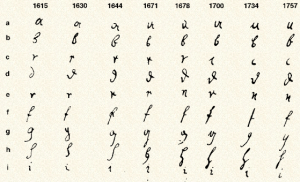Question 1:
The notion that a big distinguishing factor about culture is whether it is considered an “oral culture” or a “written culture” is something that has been highly debated for decades. Speech and writing are so entangled with each other in every aspect of life that we are not able to distinguish the difference (MacNeil).
The thought of orality is being oral or orally communicating, or as a preference for or the tendency to use spoken forms of language instead of writing (MacNeil). When we look at written history it is perceived as being absolutely necessary for the development not only of science but of history, philosophy, explicative understanding of literature and any art, and indeed for the explanation of language itself (MacNeil).
The divide in oral and written history makes one seem weaker and not as important as the other. It makes orality seem as a primitive or underdeveloped medium, as those using it aren’t flourishing in the new society that is being developed (MacNeil). Society quickly dismissed those who don’t have a written history or those who use speech and performance to relay their history. However, they are praised for their naturalness and naïveté in how they connect with one another. Speaking and listening are simple in nature, while writing and reading are cultivated and complex (Chamberlin, 34). The logic is that if people don’t have any of whatever it is: no farms, no written history, no faith, no get up and go. They are forced to do just that, get up and go (Chamberlin, 81).
What we have to think about is that oral history has been around much longer than any form of written history. Yes, there used to be markings that could represent something, but there is no proof, simply speculation. Being able to listen to a culture’s history gives you a closer connection than reading it from a book.
There are issues with both of these ways of history. When you look at written history, it didn’t start in English. It likely started in Italian or Greek and translated from there. Do we truly know how much has changed when this is done? If the people didn’t know how to translate it, would they just omit it? These are facts that no one is completely certain about. On the other hand, there is oral history, which is told through generations. Are people remembering every detail that their teachers or their elders gave them? If it is written down a different way than what it is told to someone, which way is correct?
It is interesting to consider that writing and speech go hand in hand, yet there is such a social divide in the history that you come from. I don’t feel that there should be a divide. If a person is confident in the way that they get their history why should it matter?
Work Cited
Chamberlin, J. Edward. If this is your land, where are your stories?: Finding Common Ground. Toronto: Vintage Canada, 2003. Print.
Gallery Old Writing Letters. 22 May 2015. Web. http://www.bianoti.com/gallery-old-writing-letters.html
MacNeil, Courtney. “Orality.” The Chicago School of Media Theory. 2007. Web. 22 May 2015. <https://lucian.uchicago.edu/blogs/mediatheory/keywords/orality/>.


Hello Kathryn. Although I do not believe that one form is superior to another just because it has existed longer, I also do not believe that the written form is inherently superior to the oral form, or vice versa. They are both ultimately communication tools, and the tool being used doesn’t matter so long as the job (of communication) gets done.
I think that one point which gets neglected in the written vs. oral debate is that although the written form was indeed crucial for the development of knowledge, so was the oral form. It was not as if people stopped talking to each other once writing became viable. Critical discussion and research did not become limited to paper exchanges and education still involved teachers speaking to students. Now, this is a bit of an ironic point to make in a distance course. However, one thing I’ve noticed is that rather than pushing more towards the written, technology seems to be pushing more towards the oral. With new mediums such as podcasts and audio books, the written form is losing its biggest commercial advantage over the oral form: ease of distribution. Who knows; maybe we’re heading towards a future of listening to everything that we now read and speaking everything that we now write.
Hey! I don’t think that one should be better than the other, I think maybe a blend of ways might be the way to start going. There has been advantages to both of them along the way, they are so interlocking now that you never know where that could end up!
🙂